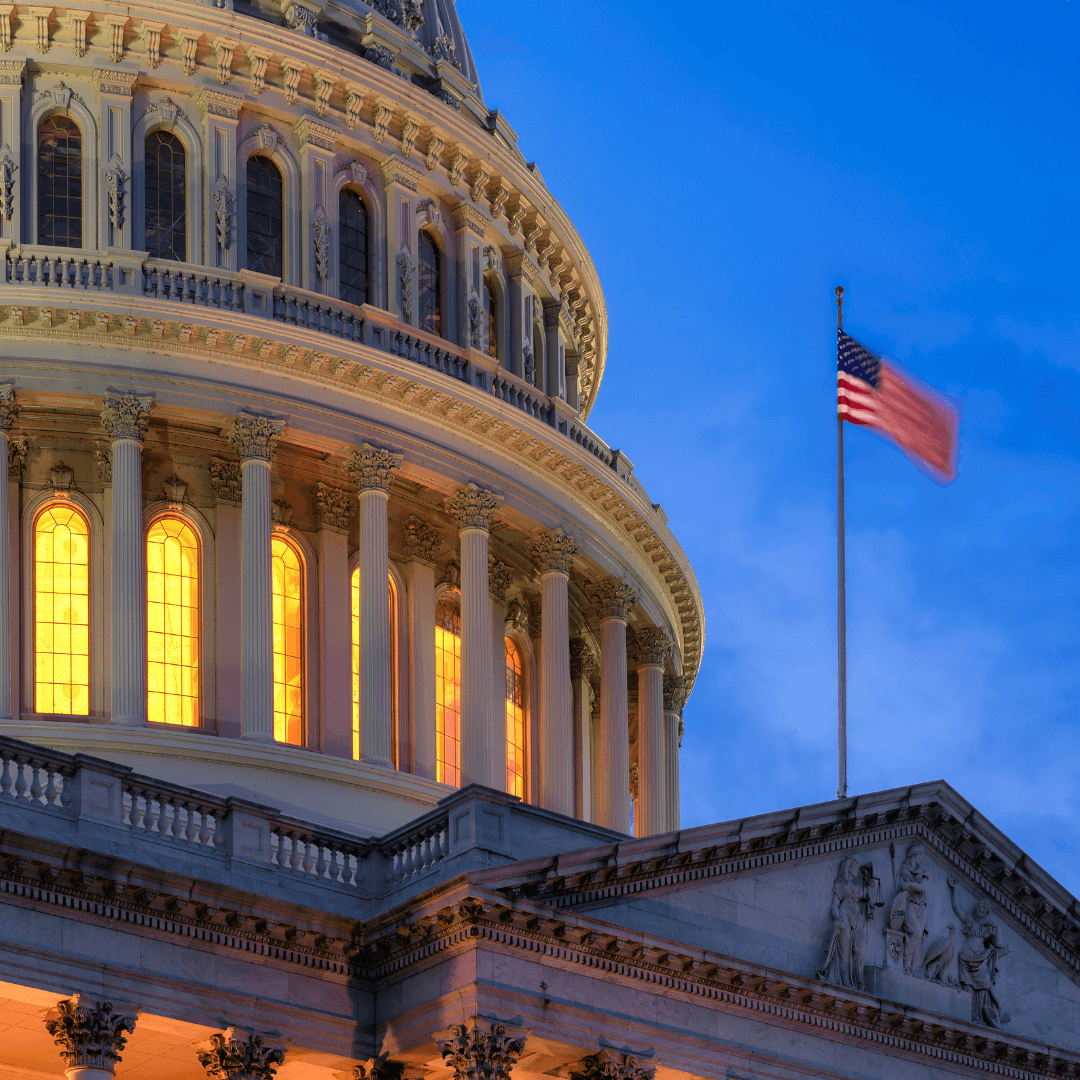November has been a busy month in cannabis policy: Congress is on the brink of ending the longest-ever government shutdown (with implications for the hemp industry and veterans access), while Virginia and New Jersey just held statewide elections that will undoubtedly change the cannabis landscape in those states (well, Commonwealth in Virginia’s case!). Let’s take a look at some of the latest updates and what it means for the cannabis industry:
Congress
There have been two big developments from Washington, D.C. related to hemp and veterans access to medical cannabis that have taken place in the last week:
Hemp ban on the horizon
You’ve probably heard by now that this most recent government shutdown has been the longest in American history. But did you know that when the Senate voted to reopen it earlier this week that Sen. Mitch McConnell (R-KY) successfully included language in the bill that would ban all hemp-derived products with more than 0.4% THC?
Well, that’s exactly what happened just days ago. In response to the inclusion of this language, Kentucky’s other Senator, Rand Paul (R) filed an amendment that would have struck that THC ban language from the minibus. What followed were many news stories, a flurry of lobbying, and ultimately, a vote on the Senate floor; on Monday evening, the Senate voted not to advance Sen. Paul’s amendment, leaving Sen. McConnell’s language (known colloquially as the “hemp ban”) in place. The final vote was 76-24.
While the House has not yet voted on this particular version of the bill, almost identical THC-banning language was passed by the chamber previously. The passage of Sen. McConnell’s language in the upper chamber all but guarantees that this language will become the law of the land- but it will be one year before the ban goes into effect.
Veterans left behind
In addition to including the aforementioned hemp ban, the Senate’s spending package also omitted a key provision related to veterans access. For context, the House had also previously passed language pertaining to VA doctors recommending marijuana to veterans, but according to Marijuana Moment, “the negotiated bill contains no language on the issue at all.” That’s surely an interesting way to honor the men and women who have served our country right at Veteran’s Day…
Virginia: a new Governor sets the stage for progress
Virginia has lived in a strange limbo since 2021: cannabis is legal- but there’s no regulated retail market. That stalemate largely stemmed from repeated vetoes from outgoing Gov. Glenn Youngkin (R), despite repeated attempts for reform made by the legislature. Now that voters have elected former-Congresswoman Abigail Spanberger (D), who campaigned on establishing a regulated adult-use market and Democrats have expanded their majority to a super majority in the House of Delegates, the prospects for a retail framework in 2026 are incredibly promising. Note that during her time in Congress, Spanberger voted for regulated adult-use cannabis via the MORE Act and was a cosponsor of the SAFE Banking Act.
Expect legislators in the Old Dominion to begin refining and reintroducing bills that lay out licensing structures, prioritize equity reinvestment, and potentially look to a phased launch for Virginia’s market. Operators should consider preparing for an accelerated early-session push focused on clear timelines for the Cannabis Control Authority, strong product safety standards, and funding for community reinvestment.
New Jersey: homegrow on the horizon?
The Garden State also chose a new governor earlier this month: former-Congresswoman Mikie Sherrill (D). Sherrill has publicly backed legalizing home cultivation– a provision which the state has lacked. If the Sherrill administration signals support, bills like S1985 (personal grow allowances for medical and adult use) could finally move. Like her former roommate in DC, Alison Spanberger, Mikie Sherrill also cosponsored the SAFE Banking Act and voted in favor of the MORE Act.
New Jersey already has a functioning adult-use market under the Cannabis Regulatory Commission (CRC), but allowing for home grow would be a targeted, consumer-friendly reform that eases price pressure, helps patients, and aligns New Jersey with other (and many neighboring) states.
These election outcomes and federal policy shifts underscore a critical inflection point for the cannabis and hemp industries. We cannot allow these trends to point to a future where cannabis policy becomes more polarized- we must continue to amplify our voices at the ballot box and through groups like NCIA and continue to unite around common-sense policies. Make sure your business has a seat at the table in 2026 and join the movement today!


Follow NCIA
Newsletter
Facebook
Twitter
LinkedIn
Instagram
–